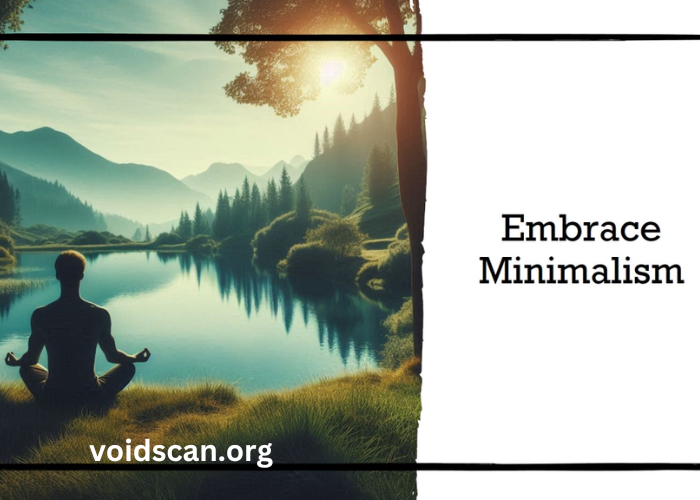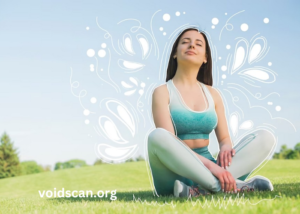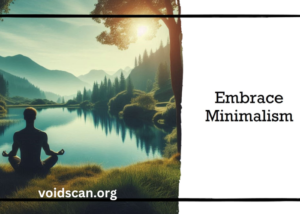
Minimalism is not just a lifestyle, but a philosophy focused on simplifying one’s life by removing the excess to focus on what truly matters. In today’s fast-paced world, people often accumulate material possessions, responsibilities, and distractions, leading to a cluttered, overwhelming existence. Minimalism encourages a return to basics, prioritizing experiences, relationships, and values over things.
At its core, minimalism involves cutting out the unnecessary in both physical and mental aspects of life. By embracing this concept, individuals can reduce stress, improve their mental clarity, and lead a more fulfilling life. In this article, we will explore how embracing minimalism can help you simplify your daily life, enhance your well-being, and provide the freedom to focus on the things that truly bring you joy and fulfillment.
1. The Philosophy Behind Minimalism
Minimalism is rooted in the idea that less is more. The philosophy encourages people to be mindful of their choices, focusing on what is essential rather than accumulating possessions or experiences that do not add value to their lives. It is not about deprivation but about intentional living, where every choice serves a purpose.
This approach invites individuals to identify their core values and make decisions based on what aligns with those values. By decluttering both your physical space and mental space, you create room for greater creativity, peace, and joy. Minimalism teaches you to appreciate what you have, rather than constantly seeking more.
2. Decluttering Your Space: A Key to Minimalist Living
One of the most significant aspects of minimalism is decluttering your living space. In a world where consumerism is rampant, people often collect items that they do not need or use. Clutter can lead to stress, confusion, and an inability to focus. Minimalism advocates for reducing possessions to only what is necessary and meaningful.
To begin decluttering:
- Assess your possessions: Take inventory of everything you own. Ask yourself whether each item brings value or joy.
- Sort by categories: Tackle different categories of items, such as clothing, books, or kitchen appliances, to avoid feeling overwhelmed.
- Let go of excess: Sell, donate, or recycle items that no longer serve a purpose in your life.
Decluttering can create a calming environment and improve your overall mental clarity and productivity.
3. The Benefits of Simplified Living
Simplified living, which is central to minimalism, provides numerous benefits. Living with fewer possessions and distractions allows you to focus on the things that truly matter in your life. The benefits of embracing minimalism include:
- Reduced stress: With less clutter and fewer distractions, you can experience greater peace of mind.
- Improved mental clarity: A tidy, organized space helps you think more clearly and make better decisions.
- Financial freedom: By focusing on needs rather than wants, you can reduce spending and save money for more meaningful experiences.
- More time for what matters: Minimalism allows you to spend more time on your relationships, hobbies, and personal growth.
By simplifying your life, you can experience more freedom, happiness, and contentment.
4. The Role of Digital Minimalism
In our digital age, technology often adds to the noise in our lives. From endless notifications to social media distractions, digital clutter can be overwhelming. Digital minimalism is a growing trend that encourages individuals to be more intentional with their digital consumption.
To embrace digital minimalism:
- Limit screen time: Set boundaries for how much time you spend on your phone or computer each day.
- Declutter your devices: Delete unnecessary apps, files, and emails to streamline your digital environment.
- Practice mindful consumption: Choose online content that adds value and avoid mindless scrolling or engagement with negativity.
By adopting digital minimalism, you can reclaim your time, reduce distractions, and foster deeper connections in the real world.
5. Embracing Minimalist Fashion: Quality Over Quantity
Minimalism in fashion is about curating a wardrobe that is both functional and meaningful. Instead of buying fast fashion or accumulating items that never get worn, minimalist fashion encourages investing in high-quality, versatile pieces that can be mixed and matched for any occasion.
To embrace minimalist fashion:
- Create a capsule wardrobe: Choose a small number of clothing items that can be combined to create multiple outfits.
- Invest in quality: Select clothing made from durable materials that will last longer and withstand wear and tear.
- Stick to neutral colors: Neutral shades are timeless and can be easily paired with other items in your wardrobe.
A minimalist wardrobe not only reduces clutter but also helps you make more mindful choices about what you wear, leading to a more intentional and sustainable lifestyle.
6. Mindful Consumption: Reducing Waste
Minimalism encourages individuals to adopt mindful consumption habits. In a consumer-driven world, it’s easy to purchase items without thinking about their environmental or long-term impact. Mindful consumption is about being aware of what you buy, how it’s made, and its ultimate usefulness in your life.
To practice mindful consumption:
- Buy only what you need: Avoid impulse buying by focusing on essential purchases.
- Consider sustainability: Choose products that are environmentally friendly and ethically produced.
- Reduce, reuse, recycle: Opt for reusable items instead of disposable ones to minimize waste.
By being intentional about your purchases, you not only declutter your life but also contribute to a more sustainable planet.
7. The Impact of Minimalism on Mental Health
Minimalism has a profound impact on mental health. The process of decluttering and simplifying your life helps reduce mental and emotional stress. When your environment is organized and free from excess, it allows for greater mental clarity and reduces feelings of overwhelm.
Minimalism can improve mental health by:
- Reducing decision fatigue: With fewer choices to make, you can focus on what’s truly important.
- Encouraging mindfulness: Minimalism promotes being present in the moment, which reduces anxiety and enhances well-being.
- Boosting self-esteem: By focusing on experiences and relationships rather than possessions, you can feel more connected to your true self.
By embracing a minimalist mindset, you can create a more balanced, peaceful mental state.
8. Minimalism in the Workplace: Boosting Productivity
Minimalism is not just for the home; it can also be applied in the workplace to improve productivity and focus. A clutter-free desk and a streamlined work environment can help reduce distractions and make it easier to stay organized and focused on tasks.
To incorporate minimalism at work:
- Keep your workspace tidy: Organize your desk, files, and digital space to promote focus and efficiency.
- Prioritize tasks: Focus on completing the most important tasks first and avoid multitasking.
- Eliminate unnecessary meetings: Cut down on time spent in meetings that don’t contribute to your goals.
A minimalist approach to work can help you stay organized, reduce stress, and achieve better results.
9. The Power of Saying No: Prioritizing What Matters
Minimalism encourages you to say no to things that do not align with your values or goals. In a world where people often feel obligated to take on too many commitments, learning to say no is a key aspect of simplifying your life.
To prioritize what matters:
- Evaluate your commitments: Consider whether each obligation is necessary and whether it aligns with your goals.
- Set boundaries: Protect your time by saying no to activities that don’t contribute to your well-being.
- Focus on quality relationships: Instead of spreading yourself thin, invest your time in relationships that are meaningful and fulfilling.
By learning to say no, you create space in your life for the things that truly matter and reduce stress.
10. Minimalist Home Design: Creating a Calm, Functional Space
Minimalist home design focuses on creating spaces that are simple, functional, and aesthetically pleasing. By reducing clutter and emphasizing quality over quantity, minimalist home design helps create an environment that promotes peace, relaxation, and productivity.
To create a minimalist home:
- Choose neutral colors: Soft, neutral tones can create a calm atmosphere.
- Invest in functional furniture: Select furniture that is both practical and stylish, with a focus on quality materials.
- Declutter regularly: Keep only essential items and periodically reassess your belongings to ensure everything serves a purpose.
A minimalist home is a sanctuary that reflects a simplified, intentional way of living.
11. Building Financial Freedom Through Minimalism
Minimalism can have a profound impact on your finances. By focusing on needs rather than wants, you can reduce unnecessary spending, pay off debt, and build savings. The minimalist lifestyle encourages financial freedom by helping you live below your means and prioritize long-term financial goals.
To achieve financial freedom through minimalism:
- Track your expenses: Monitor your spending to identify areas where you can cut back.
- Create a budget: Set clear financial goals and stick to a budget that aligns with your values.
- Save and invest: Build an emergency fund and start investing for your future.
Minimalism allows you to live with less financial stress and create a more secure future.
12. Minimalism in Relationships: Focus on Quality, Not Quantity
Minimalism in relationships means focusing on building meaningful, high-quality connections rather than trying to maintain a large number of superficial relationships. It encourages people to invest their time and energy into relationships that truly bring joy and fulfillment.
To embrace minimalism in relationships:
- Cultivate deep connections: Spend time with people who align with your values and make you feel supported.
- Let go of toxic relationships: Free yourself from relationships that drain your energy or cause harm.
- Communicate intentionally: Be present in your interactions and prioritize authentic communication.
By simplifying your relationships, you can foster stronger, more meaningful bonds.
13. Embracing a Minimalist Mindset for Long-Term Success
Adopting a minimalist mindset is not a one-time effort but a long-term approach to living a simplified, intentional life. Over time, you’ll develop habits and practices that help you stay aligned with your values and goals.
To maintain a minimalist mindset:
- Review your priorities: Regularly reassess your goals and values to ensure they align with your actions.
- Stay intentional: Make deliberate choices that support your well-being and happiness.
- Practice gratitude: Focus on appreciating what you have rather than constantly seeking more.
A minimalist mindset is key to living a life that is fulfilling, purposeful, and free from unnecessary stress.
14. Minimalism and Sustainability: Living with a Purpose
Minimalism and sustainability go hand in hand. By reducing consumption, choosing durable products, and focusing on quality rather than quantity, minimalism encourages a more sustainable lifestyle that benefits both individuals and the planet.
To live sustainably through minimalism:
- Buy fewer, better things: Choose products that are made to last and have minimal environmental impact.
- Reduce waste: Avoid single-use items and focus on recycling and repurposing.
- Support ethical companies: Choose brands that prioritize sustainability and ethical practices.
By embracing minimalism, you contribute to a healthier planet and a more sustainable future.
15. Conclusion: Embrace Minimalism for a Simpler, More Fulfilling Life
Minimalism is a powerful tool for simplifying your life and focusing on what truly matters. By decluttering your physical space, reducing distractions, and prioritizing relationships, you can create a life that is more peaceful, intentional, and fulfilling. Embracing minimalism allows you to break free from the overwhelm of modern living and find greater joy in the simple things.
As you adopt minimalist practices, remember that it’s not about perfection but about progress. Start small, be patient with yourself, and continue to simplify your life in ways that align with your values and goals. Through minimalism, you can create a life that brings you more peace, more freedom, and more meaning.





